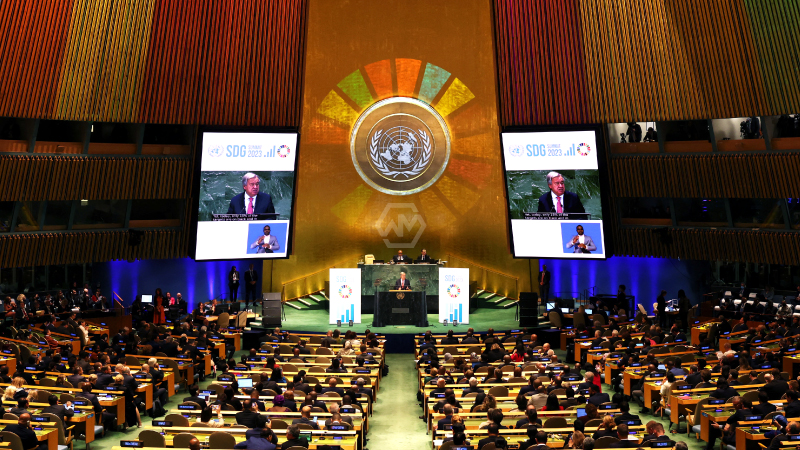- Global leaders have committed to stepping up efforts to meet the SDGs by 2030.
- An SDG stimulus is required, with a $500 billion increase per year.
- Nigeria is one of the 20 nations with the lowest SDG achievement rates.
Global leaders have committed to stepping up efforts to meet the Sustainable Development Goals (SDGs) by 2030 at the United Nations General Assembly in New York.
To achieve the goals, the proclamation underlines the necessity of making large investments in developing nations’ energy, food, digital transformations, education, and social protection. Additionally, an SDG stimulus is required, with a $500 billion increase per year.
Funding for underdeveloped nations
Despite the long-standing commitment to protecting everyone’s rights and well-being on a healthy planet, the SDGs have been in danger since 2020 as tens of millions of people have fallen into poverty, over 110 million have been forcibly displaced, and inequality, particularly for women and girls, has gotten worse.
As climate emergencies have wreaked havoc on lives and livelihoods, governments have been forced to make difficult decisions about whether to pay a debt or invest in healthcare and education.
The Global Call to Action Against Poverty (GCAP) and the Nigeria Network of Non-Governmental Organizations (NGOs) have criticized the SDGs’ poor development, pointing out Nigeria’s position of 146 out of 166 nations and its score of 54.3% on the global scorecard. Additionally, Nigeria is one of the 20 nations with the lowest SDG achievement rates.



